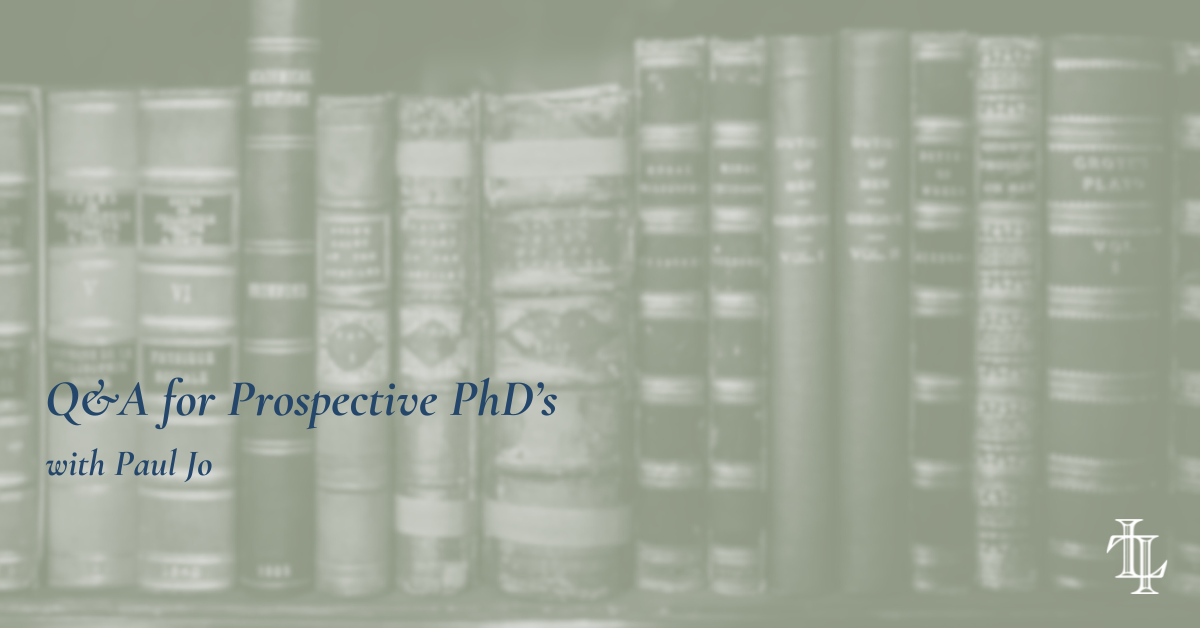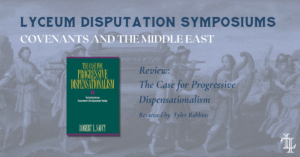The following is a series of short Q&A essays exploring advice for prospective seminary PhD students.
This essay features Dr. Paul Jo, Administration Assistant to the Academic Graduate Studies and Adjunct Professor of Christian Theology at Gateway Seminary
How did you enter into ministry in the academy/desire to pursue a PhD?
When I was saved at the age of sixteen, the Lord immediately put a hunger in my heart to know him in his word, and this desire continued with me throughout all my church ministry contexts and led me ultimately to pursue a PhD degree in New Testament. I immensely enjoyed my biblical studies in both New and Old Testaments and my dissertation culminated as an intertestamental study. The biggest factor in this pursuit was the hunger for the Lord, and I am grateful for all the doors he opened for me.
How is educational ministry indeed a ministry that can serve the church?
As the Westminster Larger Catechism famously states, the chief end of man is to glorify God and to enjoy him forever, educational ministry plays a vital role in nurturing this end by renewing the minds (Romans 12:2) and supplementing faith with wisdom and knowledge (2 Peter 1:3–7). Through careful study of the revealed word (2 Timothy 2:15) and the retrieval of the rich theological heritage entrusted to the church (2 Timothy 2:2), educational ministry nourishes and strengthens the church.
How did you develop your research interests?
As I was pursuing a PhD degree in New Testament, I was convinced that higher critical methodologies impoverish scriptural exegeses, and I felt the burden to provide a methodological framework that would foster meaningful scriptural reading experiences. Recognizing the limitations of modern literary theories in addressing the nuances of scriptural texts, I undertook an investigation into the literary style of the Gospel of John in light of Old Testament poetics of narrative, poetry, and prophecy. In this study, I found myself particularly struck by the unity within diversity, simplicity in profound and unfathomable depths, and the almost symphonic harmony of John’s style. I came to be convinced that this was due to God’s own nature of being simple. This exploration prompted me to look into the concept of divine simplicity in the church fathers. Presently, I am working on my theology dissertation focusing on the divine simplicity within the works of Irenaeus of Lyons. He utilizes the Gospel of John to counter the distortions of Gnosticism, which fundamentally fragmented God’s being and nature.
Tell us about your publications and current research.
I published Introduction to the Literary Art of the Gospel of John: A Biblical Approach with Wipf & Stock in 2022, and currently, I am exploring how Irenaeus of Lyons’s articulation of divine simplicity serves as a corrective to modern trinitarian theology.
What advice do you have for beginning PhD students or students who desire to research and write well?
What matters the most is your writing. Approach your reading with the intention of producing your own writing. Avoid the mistake of simply accumulating quotations in your notes. Always try to put them in your own words (of course with proper citations). Your notes are only as good as they are your own words. If you spend, for example, three or four hours in your research and writing each day, allocate time towards the end to distill your readings into well written pieces that connect with other pre-existing notes. Work and organize materials multi-dimensionally rather than linearly in your writing process; that is, rather than trying to write from the beginning to the end, write sections of your project each day and connect them together as you branch out your thoughts. Additionally, consider the benefit of handwriting over typing.
What excites you about your field?
I count it as an immense privilege to study God as he is revealed in the word and explored in the rich theological traditions of the church. He is the alpha and the omega of all things, and the beginning and the end of our salvation. He is unfathomable and unsearchable! Paul says, “Oh, the depth of the riches and wisdom and knowledge of God! How unsearchable are his judgments and how inscrutable his ways!” (Rom. 11:33) Therefore, there is nothing more exciting than knowing him as he is in himself.
Author
-

Paul Jo is the administrative assistant for academic graduate studies at Gateway Seminary where he is also an adjunct professor of Christian theology. He received his PhD in New Testament from Mid-America Baptist Theology Seminary and is currently working on his PhD in theology.
View all postsRecent Posts




